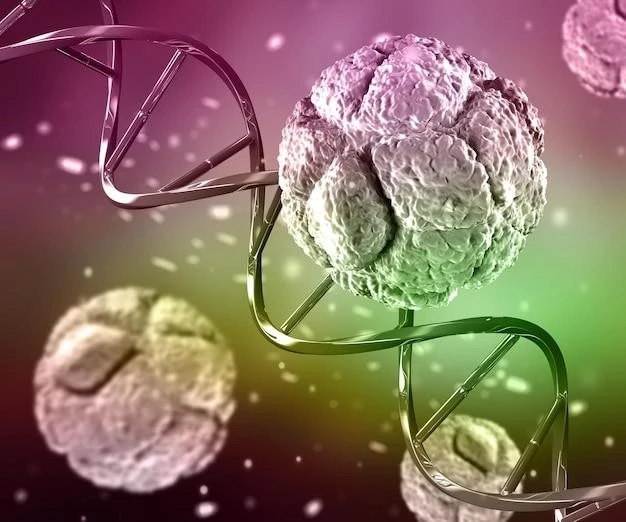Introduction to Trihydroxycholestanoylcoa Oxidase Isolated Deficiency
Sterol carrier protein X (SCPx) plays a crucial role in peroxisomal metabolism․ Deficiency can lead to disorders affecting fatty acid oxidation․ Stay informed!
Peroxisomes play a vital role in the oxidation of branched-chain fatty acids through enzymes like SCPx․ Understanding these metabolic pathways is crucial in diagnosing and managing disorders related to peroxisomal function․ Research explores the significance of SCPx deficiency in peroxisomal disorders․
Understanding Peroxisomal Disorders
Learn about the significant role of peroxisomes in metabolizing fatty acids and the impact of enzyme deficiencies on peroxisomal functions․ Stay informed!
Background Information
Peroxisomes are crucial for fatty acid metabolism‚ housing enzymes like SCPx that play a vital role in oxidation․ Defects in peroxisomal metabolism can lead to severe implications‚ emphasizing the need for further research in this area․ Understanding the role of peroxisomes in metabolism is key to addressing related disorders effectively․
Peroxisomal β-Oxidation Defects
Peroxisomal β-oxidation defects‚ such as the deficiency of trihydroxycholestanoyl-CoA oxidase‚ can lead to metabolic disruptions affecting fatty acid oxidation processes․ Understanding these defects’ implications is crucial for diagnosis and management․ Research advances shed light on the importance of identifying and addressing such deficiencies in peroxisomal function․
Trihydroxycholestanoylcoa Oxidase
Understanding the role of sterol carrier protein X (SCPx) in peroxisomal metabolism is essential in comprehending the significance of deficiencies related to fatty acid oxidation processes․ Stay informed!
Importance of Trihydroxycholestanoylcoa Oxidase
The deficiency in trihydroxycholestanoyl-CoA oxidase can significantly impact peroxisomal function‚ leading to disruptions in fatty acid metabolism․ Understanding the crucial role of this enzyme is critical for diagnosing and managing related disorders effectively․
Identification of Deficiency
Researchers have developed novel assays to measure SCPx activity in patients suspected of peroxisomal β-oxidation defects․ Identification of trihydroxycholestanoyl-CoA oxidase deficiency is crucial for accurate diagnosis and appropriate management of peroxisomal disorders affecting fatty acid metabolism․
Symptoms and Diagnosis
Recognize the signs of peroxisomal disorders affecting fatty acid metabolism․ Diagnosing deficiencies early is vital for effective treatment․ Stay vigilant!
Clinical Presentation of the Deficiency
Recognizing the clinical manifestations of trihydroxycholestanoyl-CoA oxidase isolated deficiency is crucial for timely diagnosis and intervention․ Understanding the specific symptoms associated with this disorder is essential for effective management․ Stay informed about the potential clinical signs to watch out for!
Diagnostic Approaches
Novel assays have been developed to measure the activity of sterol carrier protein X (SCPx) in patients suspected of peroxisomal β-oxidation defects‚ providing insights into deficiencies like trihydroxycholestanoyl-CoA oxidase deficiency․ Early and accurate diagnostic approaches are crucial for managing peroxisomal disorders effectively․ Stay informed about the latest advancements!
Genetic Basis
Understand the genetic mutations associated with trihydroxycholestanoyl-CoA oxidase isolated deficiency․ Stay informed about the underlying genetic factors․
Genetic Mutations Associated with the Deficiency
Understanding the genetic mutations linked to trihydroxycholestanoyl-CoA oxidase deficiency is crucial for diagnosing inherited peroxisomal disorders affecting fatty acid metabolism․ Stay informed about the genetic basis of this deficiency!

Management and Treatment
Explore current treatment strategies for trihydroxycholestanoyl-CoA oxidase isolated deficiency․ Stay informed about managing this condition effectively․
Current Treatment Strategies
Current treatment strategies for trihydroxycholestanoyl-CoA oxidase isolated deficiency focus on managing symptoms‚ supporting metabolic function‚ and addressing fatty acid oxidation issues․ Stay updated on the evolving approaches to effectively treat this condition․
Research and Advancements
Stay updated on recent findings related to trihydroxycholestanoyl-CoA oxidase deficiency․ Explore the latest research advancements in understanding and managing this condition․
Recent Findings in Trihydroxycholestanoylcoa Oxidase Deficiency
Recent research has revealed insights into the genetic mutations and metabolic implications of trihydroxycholestanoyl-CoA oxidase deficiency‚ shedding light on potential therapeutic targets․ Stay updated on the latest discoveries in this field to enhance treatment approaches․
Impact on Patients’ Lives
Understanding the challenges faced by individuals with trihydroxycholestanoyl-CoA oxidase isolated deficiency is crucial for providing support and enhancing their quality of life․ Stay empathetic and informed about the impact on patients!
Challenges Faced by Individuals with the Deficiency
Individuals with trihydroxycholestanoyl-CoA oxidase isolated deficiency may encounter difficulties related to metabolic disruptions affecting fatty acid oxidation․ Understanding and addressing these challenges is essential for enhancing the quality of life and providing appropriate support to affected individuals․ Stay informed about the specific hurdles faced by those with this condition to offer comprehensive care and assistance․
Future Directions in Treatment
Stay informed about promising research areas for therapeutic development in trihydroxycholestanoyl-CoA oxidase isolated deficiency․ Explore potential future directions to enhance treatment strategies effectively․
Promising Research Areas for Therapeutic Development
Research in potential therapeutic developments for trihydroxycholestanoyl-CoA oxidase isolated deficiency is essential for advancing treatment options․ Stay informed about emerging research areas to enhance future treatment strategies effectively․
Support and Resources
Discover organizations offering assistance and information for individuals with trihydroxycholestanoyl-CoA oxidase isolated deficiency․ Stay connected with valuable support networks!
Organizations Offering Assistance and Information
Find valuable support and information from organizations dedicated to aiding individuals with trihydroxycholestanoyl-CoA oxidase isolated deficiency․ Stay connected with these resources for comprehensive guidance and assistance!
Importance of Early Detection
Recognize the benefits of early diagnosis and intervention in trihydroxycholestanoyl-CoA oxidase isolated deficiency․ Early detection is vital for effective management and improved outcomes․ Stay proactive!
Benefits of Timely Diagnosis and Intervention
Early diagnosis and intervention in trihydroxycholestanoyl-CoA oxidase isolated deficiency can lead to improved management strategies‚ enhanced treatment outcomes‚ and better overall quality of life for affected individuals․ Recognizing and addressing the condition promptly is crucial for optimizing patient care and supporting better health outcomes in the long run․ Stay proactive in identifying and addressing the deficiency to promote positive health results and well-being․
Lifestyle Modifications
Explore dietary and lifestyle recommendations tailored for individuals with trihydroxycholestanoyl-CoA oxidase isolated deficiency․ Implementing these adjustments can positively impact overall well-being․ Stay proactive in making these lifestyle changes!
Dietary and Lifestyle Recommendations for Patients
Implementing dietary modifications such as controlling fat intake‚ incorporating essential fatty acids‚ and adopting a balanced diet can positively impact patients’ health․ Lifestyle adjustments like regular physical activity and avoiding alcohol can complement dietary changes‚ contributing to overall well-being․ Stay proactive in following these recommendations to manage trihydroxycholestanoyl-CoA oxidase isolated deficiency effectively․

Conclusion
Effective management of trihydroxycholestanoyl-CoA oxidase isolated deficiency involves a multidisciplinary approach‚ focusing on early detection‚ dietary modifications‚ treatment strategies‚ and lifestyle adjustments․ Staying informed‚ seeking support from relevant organizations‚ and following promising research advancements are key to enhancing patient outcomes and quality of life․ By understanding the genetic basis‚ symptoms‚ diagnosis‚ and impact on patients’ lives‚ healthcare professionals can provide optimal care and support for individuals with this rare condition․ Embracing a proactive approach to treatment and staying connected to available resources can significantly improve the management of trihydroxycholestanoyl-CoA oxidase isolated deficiency․
